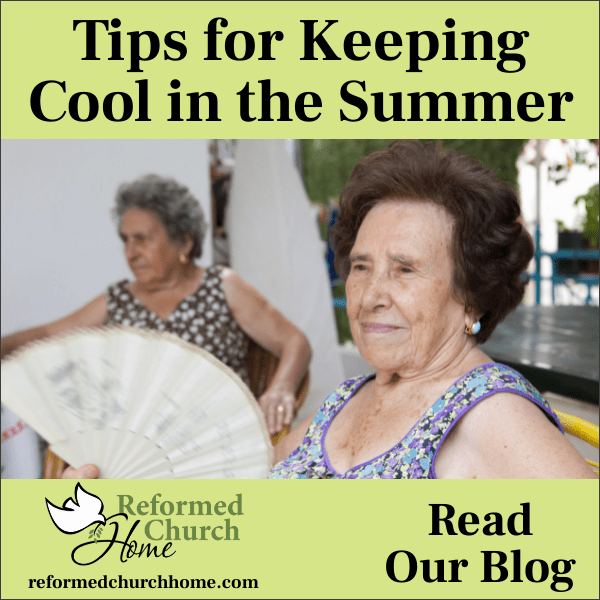Tips for Ensuring Seniors Stay Cool During the Summer Season
As per the CDC’s findings, senior individuals face a higher vulnerability to heat-related illnesses and injuries. Due to a decrease in sweat production, which is the body’s primary mechanism for regulating temperature, aging adults become less proficient at temperature regulation. Consequently, seniors are more prone to heat stroke during the summer months compared to younger individuals.
Considering the health risks associated with higher temperatures, it is crucial to monitor the well-being of senior citizens, particularly during summer. Presented below are several recommendations to promote the safety and health of seniors when faced with the heat of the summer season.
- Minimize Outdoor Exposure in Extreme Heat During periods of intense heat and humidity, evaporation slows down, compelling the body to exert additional effort to maintain a normal temperature. It is advisable to restrict outdoor activities to the morning and evening hours when the sun’s intensity is lower, especially between 10 am and 4 pm.
- Dress Appropriately for the Weather Choose loose-fitting and lightweight clothing made from breathable fabrics like cotton. Opt for light-colored attire that reflects sunlight and heat, rather than darker shades that absorb them.
- Seek Air-Conditioned Environments If your home lacks air conditioning, seek out places that provide it. Movie theaters, shopping malls, the homes of friends or family members, or community senior centers can offer relief. Contact your local Area Agency on Aging to locate nearby cooling centers during prolonged periods of extreme heat.
- Stay Hydrated To maintain proper hydration, consume at least eight glasses of water or fruit juices each day. Avoid alcoholic and caffeinated beverages such as soda, coffee, and tea, as they can lead to rapid dehydration. Increase fluid intake when engaging in physical activity or when the weather is particularly hot.
- Protect Your Skin and Eyes Shield your eyes from harmful UV rays by wearing sunglasses that offer adequate protection. When outdoors, safeguard your skin by donning hats, sunglasses, and sunscreen with an SPF of 30 or higher, capable of shielding against both UVA and UVB radiation.
- Monitor Medication Side Effects Be aware that certain medications can increase sensitivity to the sun. Review your medications and consult with your doctor regarding any concerns or inquiries you may have.
- Pay Attention to Early Warning Signs Stay vigilant for early indicators such as disorientation, dry skin, excessive fatigue, headaches, lethargy, nausea, flushed face, elevated body temperature, rapid pulse, dizziness, and confusion. Take immediate action if any symptoms arise.
- Maintain Regular Contact Create a readily accessible list of emergency phone numbers in case of need.
As a caregiver or loved one, you can assist seniors in staying cool by:
- Visiting at least twice daily
- Watching for signs of heat exhaustion or heat stroke
- Ensuring access to air-conditioned environments
- Assisting in minimizing sun exposure
- Guaranteeing proper hydration to maintain a normal body temperature
In conclusion, if you or a loved one requires assisted living, skilled nursing, or rehabilitation services, consider reaching out to Reformed Church Home in Old Bridge, NJ. We provide exceptional care and support for seniors and their families.


